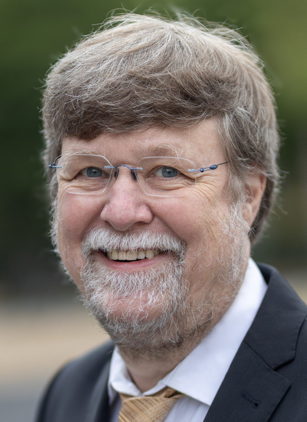
Prof. Dr. Stefan Dübel
Director
Room: P101c
Phone: +49.531.391.5731
Fax: +49.531.391.5763
e-mail: biotech(at)tu-braunschweig.de
Stefan Dübel is Full Professor of Biotechnology and Director of the corresponding department at the Technical University of Braunschweig, Germany. He also heads the technology transfer office "Center for Molecular Engineering" at iTUBSmbH and works as a consultant for biotech/pharmaceutical companies and US/EU government institutions.
He initiated the "Antibody factory" of the German National Gemome Research Network and is editor of the four volume "Handbook of Therapeutic Antibodies" and other antibody engineering books. He is co-founder of several biotech companies, including the animal-free antibody company Abcalis and Yumab, which specializes in the discovery and development of human therapeutic antibodies. He was also instrumental in founding the Corona Antibody Team and CORAT Therapeutics GmbH, which developed a passive vaccine against SARS-CoV-2 for the direct treatment of COVID-19. Two human antibodies developed in his laboratory using phage display have found clinical application (against SARS-CoV-2 and metastatic cancer).
After completing his PhD at the University of Heidelberg, he joined the German Cancer Research Center (DKFZ) in 1989, where he pioneered in vitro antibody selection, leading to several important inventions, including antibody phage display (e.g. US Patent 6387627), human antibody libraries (e.g. US Patent 6319690) and antibody libraries with randomised CDRs (e.g. EP0440146B1). His lab continued to contribute to numerous innovations in human antibody development, phage display and in vitro evolution, e.g. hyperphage technology (2001), ORFeome display (2006) and targeted RNases for cancer therapy (1995/2008). Other achievements include the development of the first protein knockdown mouse using intrabodies (2014), a universal allosteric switch module for antibody affinity (2017) and multiclonal antibodies (2019). He developed and adapted Phage Display for research antibody generation in international consortia (Affinity Proteome, Affinomics, SGC) and continues to advocate for animal-free antibody generation using Phage Display. His work has led to >300 publications and numerous patent applications.
Research topics
Antibody Engineering, Phage Display, Animal-Free Antibody Generation, Anti-Cancer-Antibodies, Intrabodies, in vitro Evolution, Synthetic Biology, Biosensors, Hyperphage, SARS-CoV-2 neutralizing antibodies
Curriculum vitae
1978-1982 Studies of Biology at the Universities of Mainz and Heidelberg, Germany
1982-1983 Diploma thesis in Botany at the Max-Planck Institute for Cell Biology in Ladenburg, Germany on Developmental Biology of the Green Algae Acetabularia
1984-1985 Zivildienst: Research on "Diagnostic Tools for Autoimmune Diseases" at the Institute of Immunology, University of Heidelberg.
1986-1989 PhD thesis at the Centre for Molecular Biologiy Heidelberg (ZMBH) on "Cell Cycle Regulation and Cell Differentiation in the Coelenterate Hydra", Promotion (Dr. rer. nat.) summa cum laude.
8/1989-7/1991 Post-Doc at the German Cancer Research Centre, Heidelberg (DKFZ) with a project on "Generation and Screening of E. coli Libraries of Recombinant Antibodies"
1/1992-7/1992 Work on "Recombinant Antibodies Against TNF Receptor" at the Institute of Cell Biology and Immunology, University of Stuttgart, Germany
8/1992-9/1996 Work on "Recombinant Antibodies, Immunotoxins and Phage Display Screening Technologies" at the German Cancer Research Centre, Heidelberg (DKFZ)
1996-2001 Group leader of the "Recombinant Antibody Unit" at the Department of Molecular Genetics, University of Heidelberg
6/1997 Habilitation (Faculty of Biology), University of Heidelberg
2/2001 Appointed "Hochschuldozent" at the University of Heidelberg
2001-2002 CSO and Member of the Directory Board of LifeBits AG
Oct 2002 - today Full Professor and Director of the Department of Biotechnology, Technical University of Braunschweig, Germany
Scholarships
1989-1991 "Stipendium zur Förderung des herausragenden wissenschaftlichen Nachwuchses" des Deutschen Krebsforschungszentrums Heidelberg ("Scholarship for the promotion of outstanding young scientists" of German Cancer Research Centre, Heidelberg)
Publications
More Information